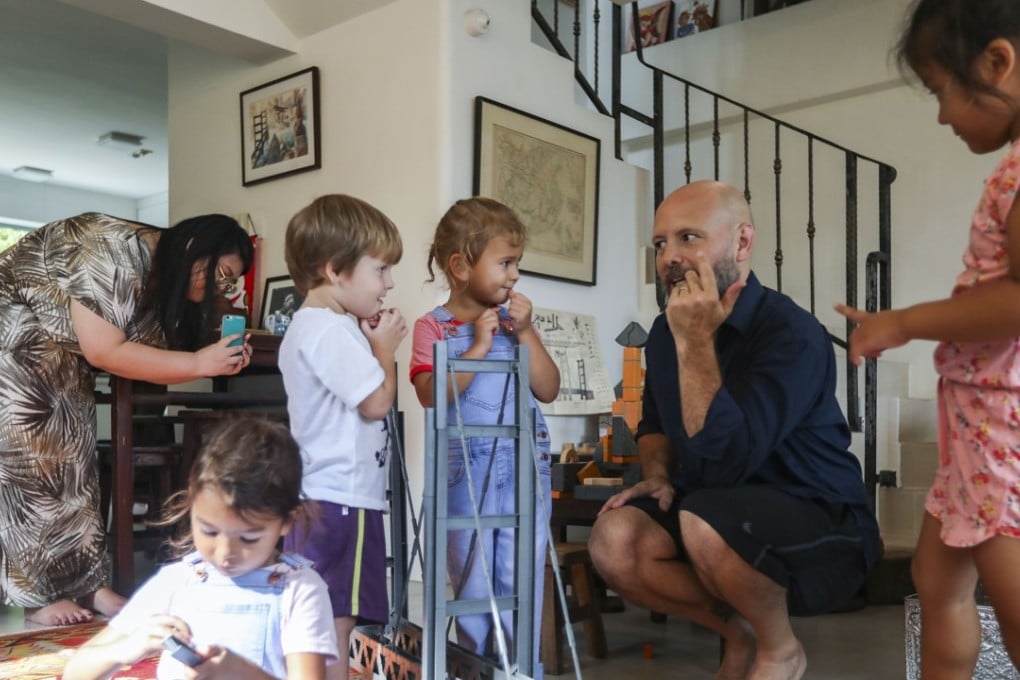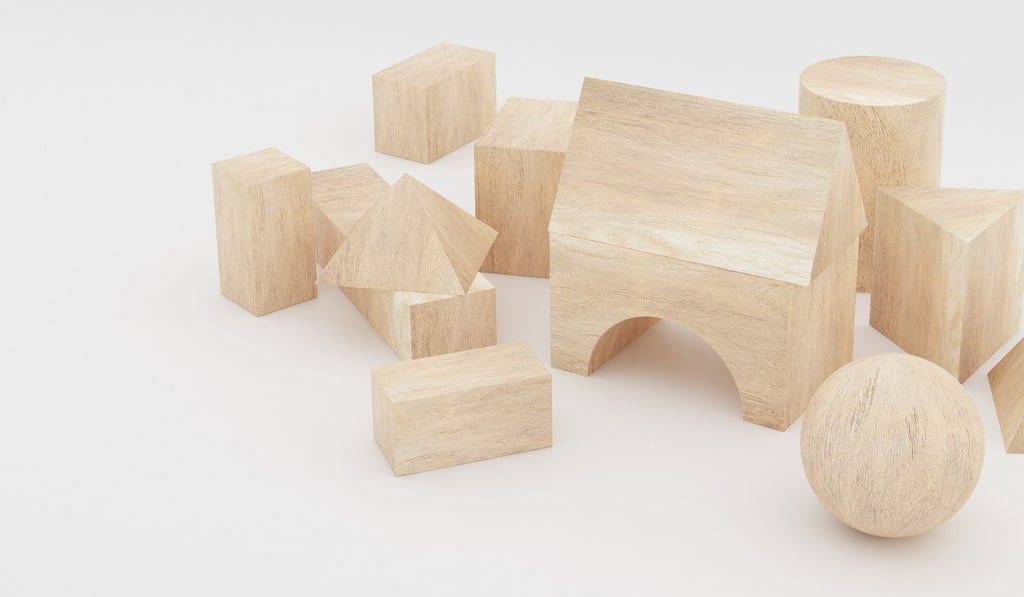Why this Christmas a set of building blocks could be the best thing to buy your kids
- Early childhood pioneer Caroline Pratt came up with the idea of the wooden blocks as an alternative to the ‘repression of formal education’ in 1913
- Modern research shows they help children improve their mathematical skills and pay attention

Rather than a mobile phone or other smart device, a simple set of building blocks could be the best gift you buy your young child this Christmas.
When Amie Wong bought a set for her 17-month-old son to play with recently, she had no idea she was taking home a solution to her six-year-old daughter’s school-related angst. Anxious and withdrawn, her daughter’s breakthrough came the day she played with the blocks intended for her little brother.
“Normally, my daughter would’ve wanted to play on her iPad when she came home from school. But that day, she came in just as her brother’s tower of blocks toppled over. She went to help him and then spent the afternoon building a city while telling cute stories. It was lovely – her city and her stories,” says Wong, a private swimming coach who will soon give birth to her third child.
Engrossed in play, Wong’s daughter finally vented about her struggles at school: she was terrified of a teacher who held her back from recess when she did not complete assignments during class time.

“She did not look up; she talked while she played. She said she found maths hard, so we used the blocks to help her with subtractions. She got it immediately. She’s doing great in maths now because she understands the basics from our time spent with the blocks,” Wong says.
Research bears out Wong’s theory. A recent study by researchers at Purdue University in the United States suggests that playing with blocks helps children improve their mathematical skills and their ability to pay attention. Semi-structured block play intervention improves maths skills, such as numeracy, shape recognition and mathematical language, and two indicators of executive functioning – cognitive flexibility and global executive functioning – the researchers found.
